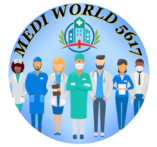MEDICAL RECORD TECHNICIAN

The Medical Record Department (MRD) staff play a critical role in managing patient health information and ensuring that medical records are accurate, accessible, secure, and compliant with regulations. Below is a detailed breakdown of their responsibilities and functions:
Roles and Responsibilities of MRD Staff
1. Medical Records Technician (MRT)
- Primary Duties:
- Organize, maintain, and update patient records (both physical and digital).
- File and retrieve records for healthcare providers.
- Ensure that medical records are accurate, complete, and up-to-date.
- Additional Tasks:
- Process patient admissions and discharges.
- Assist in transitioning paper records to electronic formats.
- Respond to requests for medical records from authorized personnel.
2. Health Information Technician (HIT)
- Primary Duties:
- Enter and manage data in Electronic Health Record (EHR) systems.
- Assign standardized codes (e.g., ICD, CPT) to diagnoses and procedures for billing and insurance.
- Additional Tasks:
- Generate reports for administrative or clinical use.
- Ensure data quality and integrity.
3. Medical Coding Specialist
- Primary Duties:
- Analyze medical records and apply appropriate diagnostic and procedural codes.
- Use coding systems like ICD-10, CPT, or HCPCS for billing and statistical purposes.
- Additional Tasks:
- Ensure codes are accurate to avoid insurance claim denials.
- Collaborate with clinical staff to clarify documentation discrepancies.
4. Release of Information (ROI) Specialist
- Primary Duties:
- Handle requests for access to medical records from patients, legal entities, and insurers.
- Ensure requests comply with regulations like HIPAA or GDPR.
- Additional Tasks:
- Prepare and release authorized copies of records.
- Track and log all disclosures of patient information.
5. Data Analyst
- Primary Duties:
- Analyze health data for trends, quality assurance, and research purposes.
- Provide statistical reports for hospital administration or external agencies.
- Additional Tasks:
- Collaborate with other departments to support healthcare planning and resource allocation.
6. Health Information Manager (HIM)
- Primary Duties:
- Oversee all functions of the MRD.
- Ensure compliance with legal, ethical, and organizational standards for recordkeeping.
- Supervise and train MRD staff.
- Additional Tasks:
- Develop and enforce policies for record management.
- Liaise with clinical, administrative, and IT departments.
7. Scanning and Indexing Technician
- Primary Duties:
- Digitize paper records using scanners.
- Index scanned records for easy retrieval in electronic systems.
- Additional Tasks:
- Perform quality checks on scanned documents to ensure accuracy.
- Archive older records in compliance with retention policies.
Daily Activities of MRD Staff
- Receiving, verifying, and organizing patient records.
- Assigning codes for diagnoses and procedures.
- Responding to information requests from healthcare providers.
- Maintaining confidentiality and ensuring secure access to records.
- Generating reports and providing data to support hospital operations and research.
- Reviewing records to ensure compliance with legal and accreditation standards.
- Archiving or securely disposing of outdated records as per retention policies.
Key Skills Required for MRD Staff
- Attention to Detail:
- Ensures accuracy in recordkeeping and coding.
- Technical Proficiency:
- Familiarity with EHR systems, coding software, and data analysis tools.
- Knowledge of Regulations:
- Understanding of laws like HIPAA, GDPR, or local health information management standards.
- Organizational Skills:
- Ability to manage large volumes of data efficiently.
- Communication Skills:
- Collaboration with healthcare providers, patients, and administrative staff.
